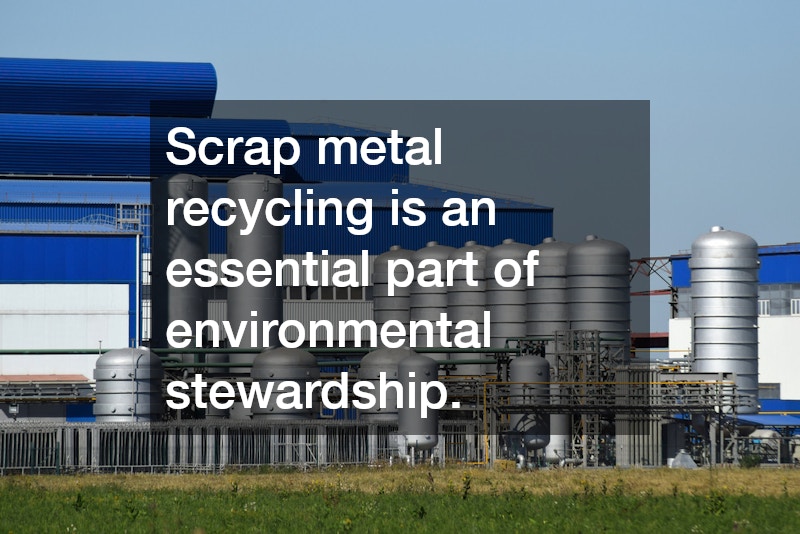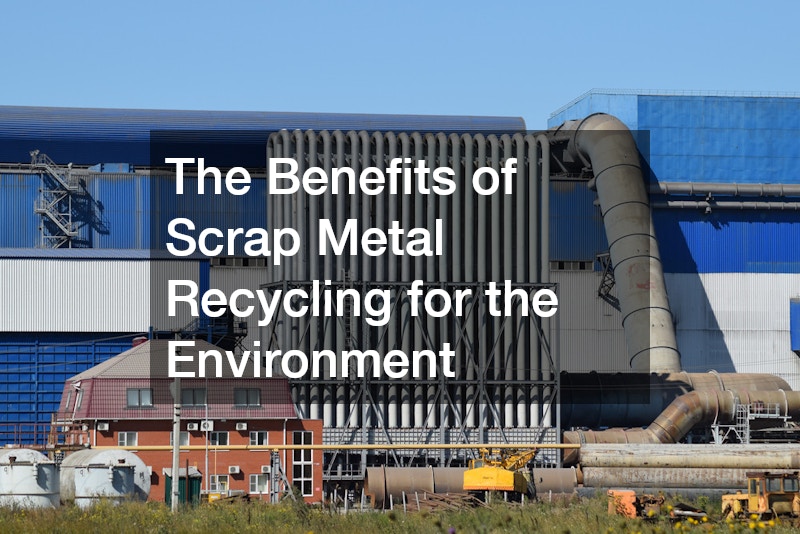Scrap metal recycling is a powerful way to reduce environmental impact and conserve valuable resources. By reprocessing metals instead of discarding them, we minimise waste and limit the demand for new mining operations.
This process benefits ecosystems, communities and the economy alike.
Protecting Natural Resources Through Recycling
One of the biggest benefits of scrap metal recycling is the conservation of natural resources. Mining metals like iron, copper, and aluminium involves disturbing landscapes, extracting vast quantities of ore, and using chemicals that can pollute soil and water. Recycling metal reduces the need for these environmentally damaging activities by reusing existing materials.
This conservation effort helps preserve wildlife habitats and maintain the balance of ecosystems that can be disrupted by mining. When scrap metal recycling is widely adopted, fewer mines are needed, less land is disturbed, and fragile environments are protected.
Reducing Energy Consumption and Emissions
Producing metals from recycled scrap consumes far less energy than extracting and refining virgin ore. For instance, recycling aluminium can save up to 95 per cent of the energy required to make it from raw materials. Steel and copper recycling also offer significant energy reductions.
Lower energy use translates into fewer greenhouse gas emissions, which are the primary drivers of climate change. By choosing scrap metal recycling, industries and individuals contribute to a cleaner atmosphere and help meet global carbon reduction targets.
Diverting Waste from Landfills
Metal waste in landfills poses long-term environmental challenges. Metals take hundreds of years to degrade naturally, and as they corrode they can release harmful substances into the soil and groundwater. Recycling scrap metal prevents this waste from accumulating in landfill sites.
Keeping metals out of landfills reduces the pressure on these sites and helps prevent potential pollution. It also supports better waste management practices and encourages the circular economy, where materials are reused rather than discarded.
Supporting Sustainable Manufacturing and Industry
Many manufacturers rely on recycled metals as key inputs for their production processes. Scrap metal recycling supplies raw materials that are just as effective as newly mined metals but come with a lower environmental footprint.
This support for sustainable manufacturing helps industries reduce their reliance on non-renewable resources and move toward more eco-friendly practices. As demand for recycled metal grows, manufacturers are motivated to improve recycling programs and invest in cleaner technologies.
Reducing Pollution and Protecting Public Health
Mining and processing raw metals generate significant air and water pollution. Dust, heavy metals and chemicals released during these activities can harm local communities and ecosystems. Scrap metal recycling limits the need for these polluting processes by reusing materials already in circulation.
Reducing mining pollution also benefits public health by decreasing exposure to toxic substances. Cleaner air and water contribute to a better quality of life for communities near mining and processing sites.
Economic Incentives for Recycling
Beyond environmental benefits, scrap metal recycling offers economic advantages that encourage participation. The industry creates jobs in the collection, processing, and resale of metal materials, providing income opportunities for individuals and businesses.
Scrap metal has significant resale value, giving people an incentive to collect and recycle metal items rather than discard them. This financial motivation helps increase recycling rates and contributes to a more sustainable economy.
How Individuals Can Make a Difference
Everyone can help promote scrap metal recycling. Separating metal waste from general rubbish makes it easier for recycling centres to process materials efficiently. Items such as old appliances, vehicles, and construction scraps are all valuable sources of recyclable metal.
Choosing products made from recycled metal or supporting businesses that prioritise sustainability also encourages the circular economy. Simple steps like these add up to significant environmental benefits over time.
Looking to the Future
The importance of scrap metal recycling will only increase as the world faces growing resource scarcity and environmental challenges. Expanding recycling programs, improving technology and raising public awareness are critical to maximising the benefits.
Communities, governments, and industries must collaborate to create systems that make recycling accessible and effective. This collaboration will help secure a healthier planet and a more sustainable future for coming generations.
Scrap metal recycling is an essential part of environmental stewardship. It conserves natural resources, reduces energy use and pollution, supports sustainable manufacturing and strengthens the economy. By embracing recycling in everyday life and supporting broader initiatives, we contribute to protecting our environment and ensuring a cleaner world for future generations.

